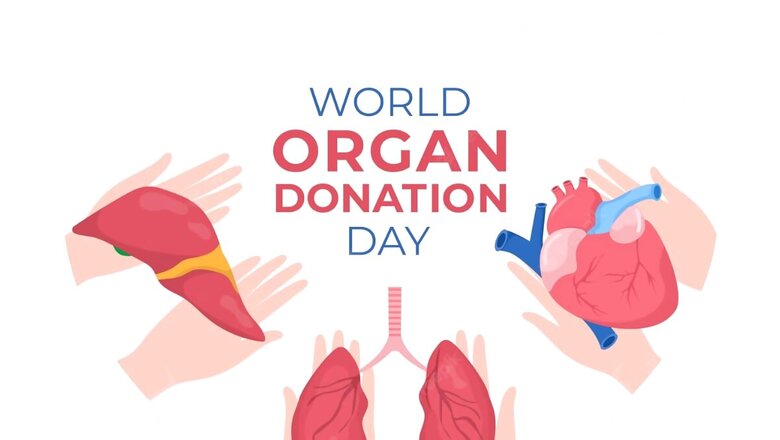
views
World Organ Donation Day 2023: Organ transplantation is a complex procedure that involves transferring cells, tissues, or organs from one person to another. It is typically used to treat patients who have experienced irreversible organ or tissue damage, resulting in end-stage organ or tissue failure. Following an organ transplant, most patients can lead healthy and normal life.
However, in some cases, the recipient’s immune system recognizes these transplanted organs or tissue as foreign and can mount an attack against it. This occurrence is known as transplant rejection.
Dr. Bipin Vibhute, Head of Liver & Multi-organ Transplant Dept, Sahyadri Hospitals, Pune, stated, “Transplant rejection occurs when a foreign object is introduced into our body, and our body’s natural response is to reject it. This automatic mechanism is driven by our highly developed immune system, which works to eliminate any foreign substances from our body. This phenomenon is particularly evident in cases of organ transplantation, such as liver, kidney, pancreas, heart, and lung transplants.”
He further added, “In these situations, the body’s antibodies strive to expel the foreign organ, leading to what we term as ‘rejection’ of the transplanted organ. This rejection process takes place because of the robust immune system present in all living creatures on Earth, which serves to prevent the entry of foreign materials into our bodies.”
Whenever any organ or tissue is transplanted into our body, our immune system’s cells, such as CD4 cells, T-lymphocytes, and B-lymphocytes (which are defence cells in our body), recognize these foreign organs, tissues, or cells. They then generate antibodies against these foreign entities to prevent rejection and maintain the integrity of our own system. As the immune response strengthens and both B-cells and T-cells become more robust, they produce an increasing number of antibodies, which can lead to organ rejection.
Types of Organ Rejection:
Dr Jatin Kothari, Director of Nephrology & Chief Consultant of Renal Transplant Medicine, at Nanavati Max Super Speciality Hospital, points out, “The first kind is ‘Hyperacute Rejection’ that occurs within minutes to hours after transplantation due to pre-existing antibodies against the donor organ.”
“Next is ‘Acute Rejection’ which develops after days to months of transplantation. This happens because the recipient’s immune system recognises donor antigens as foreign. And lastly, there is ‘Chronic Rejection’ which develops over months to years and is identified by slow, progressive loss of transplanted organ function,” he further added.
What are Immunosuppressive Medicines?
To prevent rejection of transplanted tissues or organs, doctors use immunosuppressive medicines to regulate our immune system to an optimal level.
Dr. Bipin Vibhute says, “It is essential to strike a balance to avoid excessive immunosuppression, as a weakened immune system increases susceptibility to infections.”
He went on to add, “These CNI Group drugs fall into 3 main categories, which include medications like tacrolimus and cyclosporine, and the third is the anti-proliferative group, consisting of mycophenolate mofetil and steroids. The dosage and types of medications required for maintenance vary based on factors such as the specific organs involved and individual patient needs.”
Dr Jatin Kothari added, “Immunosuppressive drugs reduce the activity of the recipient’s immune system and limit its ability to reject the transplanted organ. However, this process also decreases the body’s general ability to negate infections and cancer cells. The choice and duration of immunosuppressive therapy are based on the reason for transplantation, age, presence of other medical conditions, and risk of rejection.”




















Comments
0 comment